In their 2017 Yom Kippur sermons, rabbis of varying denominations touched on such current events as the recent wave of devastating hurricanes and even the recent solar eclipse, all to motivate, inspire and prompt introspection. Some drew on biblical text and espoused messages of tolerance and the importance of engaging others in difficult conversations amid a divisive political climate.
Here are excerpts from some of those sermons.
Rabbi Steve Leder
Wilshire Boulevard Temple
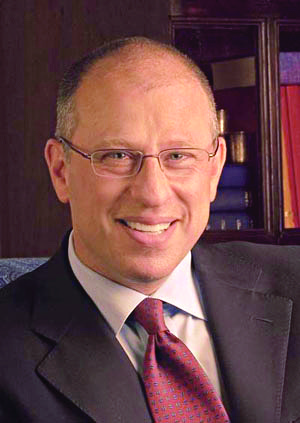
When you only have 15 characters per line to sum up a person’s life, you have to distill that life down to its most essential elements. You want to know what really matters? Walk through the cemetery and read the headstones.
It almost always comes down to a few, simple words: Loving husband, father and grandfather. Loving wife, mother and grandmother. Loyal friend. Loving Sister. Loving Brother. That’s it. No resume, no net worth. We matter when we love our family and our friends. It sometimes takes death to remind us that life really is that simple.
B’nai David-Judea Congregation

Donniel Hartman [president of the Shalom Hartman Institute] has pointed out that in its very opening chapters, the Torah has explained that sometimes the reels will feel like they are rolling together and that sometimes they won’t feel that way, and that we need to master both of the resultant types of faith experience.
In Chapters 2 and 3 of Bereshit, God is an intimate and invested presence, molding the human with his hands, enlivening the human with his own breath, planting a garden to satisfy the human’s needs, and, when necessary, castigating the human for his transgression. But the first chapter is thoroughly different. There, God is majestic, regal and distant, creating worlds through his speech, and then leaving the day-to-day operations in the hands of the creature who possesses His likeness. … And in the hands of a fair degree of mazel. “Take both of these visions,” the Torah is saying. “You will need them both to maintain your spiritual fire and your sanity.”
Rabbi Michelle Missaghieh
Temple Israel of Hollywood
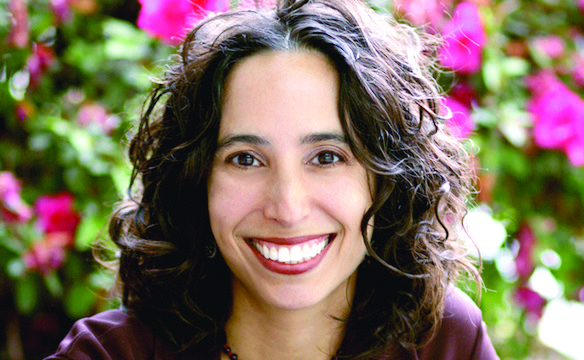
In the Book of Ruth, in our Bible, Ruth’s son becomes King David’s grandfather. That’s some yichas! According to the rabbis, one of King David’s decedents will announce the messianic age. Listen, I’m not sitting around waiting for the Messiah to walk through the sanctuary doors, but it’s a profound teaching that the Messiah will come from a non-Jew, Ruth, who was welcomed into the Jewish community. When we close ourselves off, when we don’t eat with the other, we don’t encounter the Ruths in our midst, and we prevent any possibility for the Messianic age to come.
Leo Baeck Temple
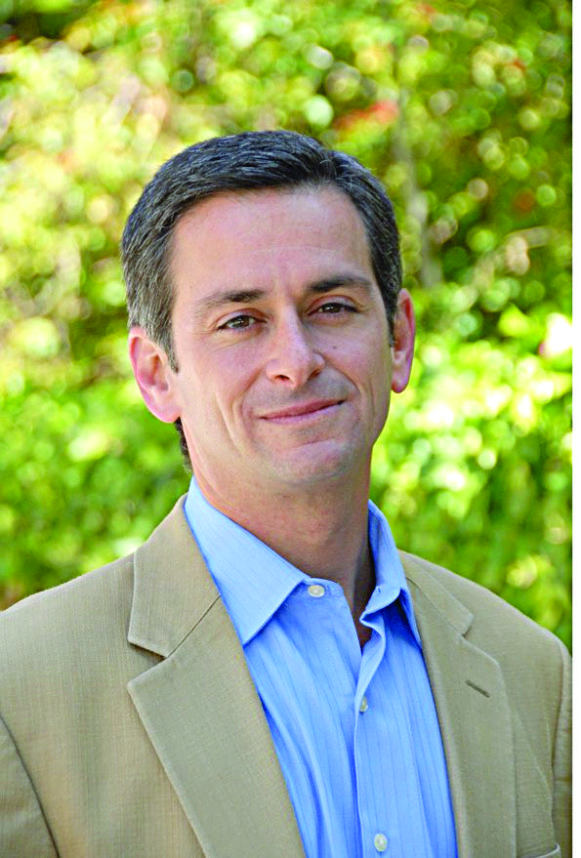
Time, temperament and turning. Three tools that our tradition has gifted to us to help us rebuild our sagging spirits. They’re the ice packs and stretching regimens we need in order to make it through the process of living in one piece. When the miles are piling up, and you are feeling and fearing just how destructible you are — don’t just keep running. Give a little something back to yourself from our Jewish tradition.
Remember how not to become paralyzed by the present … how to wear your tallit of your assuring past and your tallit of your promise to the future simultaneously. Embrace the power that lightness of soul can unleash for yourself and others. And start changing the world by changing yourself … for real … because the love you’ll feel for yourself, and the belief you’ll gain in the potential for human growth, will transform your vision of what is possible for this world.
Malibu Jewish Center and Synagogue
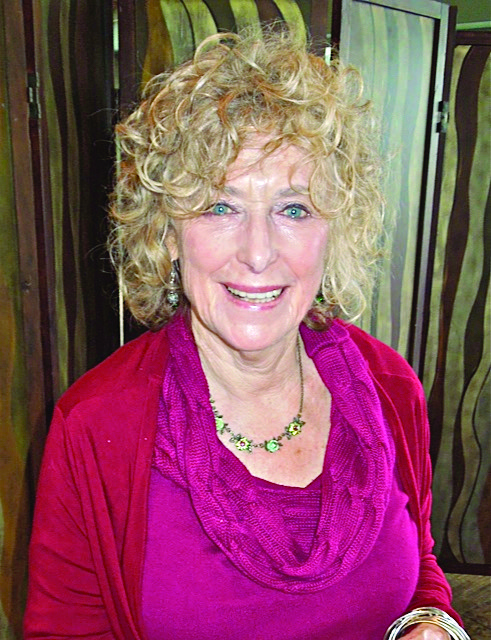
The recent solar eclipse reminds us of the promise of renewal, not only for ourselves, but for all who share the same sun and moon and stars. At this moment of alignment, we are given an extraordinary opportunity to cleanse ourselves of the blame and anger that prevents us from seeing that.
“A human being is part of a whole, limited in time and space, and even though we experience ourselves, our thoughts and feelings as something separate from the rest.” This, as Einstein reminds us, is an optical illusion. That which is concealed has been revealed, if but for an instant, if only we will open our eyes, our minds and our hearts into a greater consciousness, a “mochin d’gadlut.”
Valley Beth Shalom
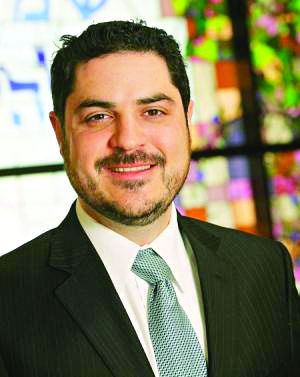
[Holiness] fills our world and floats in the background, and many of us never know that it is there. If you only live your life trying to achieve one thing — happiness — you are living along a single axis. Your life is broadcast in black and white.
But if you understand that happiness is a means and not an end, if you understand that there is a greater world out there more cherished and sacred than happiness alone, if you see yourself in service to something greater, then you can live in many dimensions at once. Your life is no longer broadcast in black and white but in full streaming Technicolor.
Congregation Or Ami
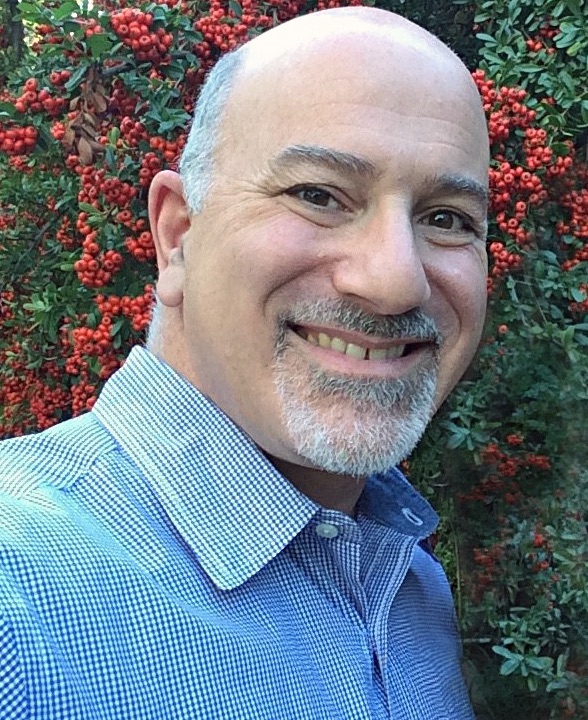
Last May, congregants from Congregation Or Ami stood together in a small sanctuary in Cuba, in a small sanctuary in Santa Clara. Only 20 Jewish families still live in that small community. We were inspired as the community leader, David, who proudly spoke about how they keep Judaism alive. Teaching the rituals. Using their small kitchen as a gathering place to make tsimis and kugel, rice and beans, and chicken soup. Against declining odds, they are sustaining a community, a community devoted to [God].
Rabbi Simcha Backman
Chabad of Glendale and the Foothill Communities
One of the confessions we make on Yom Kippur is: For the sin which we have committed before you by a glance of the eye – besikur ayin. What’s wrong with the glance of an eye? This is a deep sin of looking at something or somebody with the glance of an eye and then thinking “I got it” while in reality you got and saw nothing. For until we shut our eyes and recognize the true depth of our fellow human beings, we don’t get it at all.
And this leads us back to our central Yom Kippur message: The deeper you see yourself and those around you, the more you can forgive.
And this brings us to Yizkor. Sometimes we had a less than perfect relationship with our parents. Perhaps our father was a bit strange, or I had an overbearing mother. But we need to have the strength to look past these superficial elements and truly appreciate the depth of people.
For those of us whose parents are still alive, don’t wait until it’s too late. Make the extra effort to connect with them on a truly deep level and overlook the less than important things. Do that today. For those of us who are saying Yizkor – think of all the good moments and reconnect on a spiritual level.
May it be a year in which our eyes stay shut, so that they can remain truly open.
Temple Judea
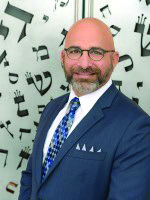
Judaism is the most optimistic religion in the world and Jews are the most optimistic people in the world. What, you ask, how can that be? Is the story of Jonah optimistic? How can we be optimistic in the face of the destruction of the Temple not once but twice? How can we be optimistic after millennia of anti-Semitism, of expulsions? Where is optimism in the face of pogroms and the Shoah?
The answer is you. Despite all these things, all this tzuris, you are sitting here, in this sanctuary. You are the guy with boat after the flood in Houston. You are people pulling survivors from the rubble of earthquake in Mexico. What Jonah failed to realize — and what I think we fail to realize — is that our story is not the story of the destruction of the Temples or the expulsion from Spain or the Shoah. Our story and our religion is the story of what happens between those events — the boats that come to save us. That’s who you are. That’s who we are.
Rabbi Amy Bernstein
Kehillat Israel

Peg Streep, who writes about unloved daughters, says, “Forgiveness is not the goal. Healing is the goal.” For me and for many others who have suffered abuse and betrayal, this is the absolute truth. Forgiveness is not the goal. Healing is the goal. The action we take in the face of our suffering is to heal and to make meaning out of our own pain.
Staff Writer Ryan Torok contributed to this report.
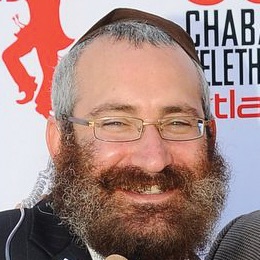





















 More news and opinions than at a Shabbat dinner, right in your inbox.
More news and opinions than at a Shabbat dinner, right in your inbox.